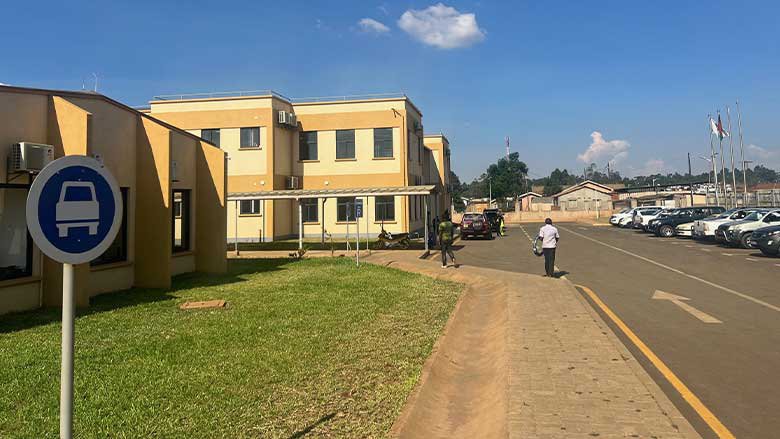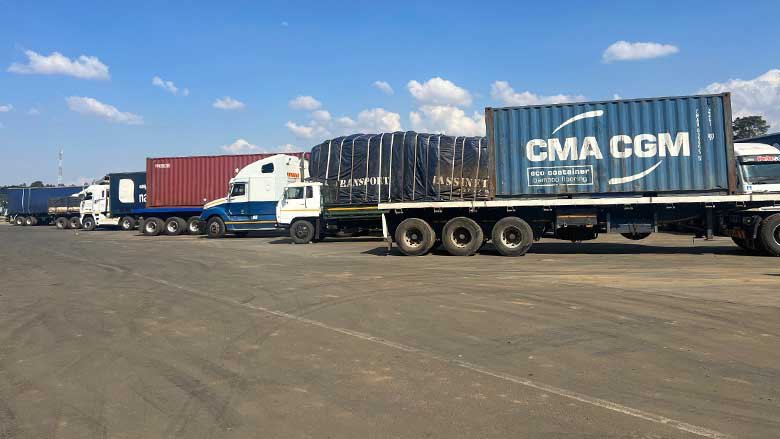LILONGWE – April 2024– The Dedza border post, situated between Malawi and Mozambique, is a busy place. On average, more than 80 trucks are cleared daily, carrying shop merchandise from South Africa to Malawi including fertilizers for Malawi’s agriculture sector.
For the past few years, before the construction of the new One-Stop Border Post (OSBP) facility, it took about 24 to 36 hours to clear a truck carrying items such as wheat, fertilizers, groceries, and raw materials for Malawi’s manufacturing industry. Drivers and clearing agents had to dash from one office to another between the two countries to clear the goods. Malawian traders traveling to and from South Africa through the Dedza–Mozambique border had difficulty locating the appropriate offices to present the required paperwork. In addition, the lack of parking facilities meant that the road leading to the border post was always congested, as trucks scrambled for space to park while waiting to be cleared.
Establishing One-Stop Border Posts
In 2015, the Government of Malawi embarked on an ambitious program to construct border posts in Dedza and Mwanza (both bordering Mozambique) and Songwe (bordering Tanzania), set up OSBPs with these neighboring countries, and establish the National Single Window (NSW). The NSW is an electronic platform system connecting international trade and transport stakeholders to fulfill all imports, exports, and transit border control procedures. World Bank support of $91.7 million was provided through the Southern Africa Trade and Transport Facilitation Project. The objective was to reduce the cost of cross-border transactions by supporting the modernization, simplification, and harmonization of the trade and transit procedures and policies.
The Dedza One-Stop Border Post, which was completed in 2023, boasts two examination bays for goods, parking spots for 100 freight trucks, and a modern passenger terminal.
“We now take less than half a day to process all the paperwork to clear the goods that we have carried, which is far less than the minimum of three days that we used to spend here,” says Flatella Makwakwa, a truck driver who has been using the Dedza border for more than three years. He also acknowledges the benefits of the new system when it comes to facilitating the passing of trucks and making life more comfortable for the users.
The new office infrastructure has made the process of clearing goods easier for the Malawi Revenue Authority (MRA), various other border officers, and users. The OSBP concept requires border officers from adjacent countries to be hosted in the same building. “It now feels good to go to work as the environment looks spacious and comfortable and we are looking forward to hosting our Mozambique counterparts very soon,” says Lucy Chikhawo, the MRA Station Manager for the Dedza border post which hosts more than a hundred government officers—including those from the Malawi Bureau of Standards, Immigration, Police, Agriculture and Health.


